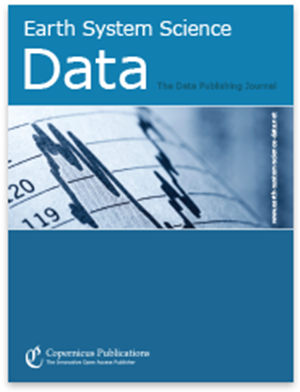Weekly Green Tide Mapping in the Yellow Sea with Deep Learning: Integrating Optical and SAR Ocean Imagery
IF 11.6
1区 地球科学
Q1 GEOSCIENCES, MULTIDISCIPLINARY
引用次数: 0
Abstract
Abstract. Since 2008, the Yellow Sea has experienced a world's largest-scale marine disasters, known as the green tide, marked by the rapid proliferation and accumulation of large floating algae. Leveraging advanced AI models, namely AlgaeNet and GANet, this study comprehensively extracted and analyzed green tide occurrences using optical Moderate Resolution Imaging Spectroradiometer (MODIS) images and microwave Sentinel-1 Synthetic Aperture Radar (SAR) images. Most importantly, this study presents a continuous and seamless weekly average green tide coverage dataset with the resolution of 500 m, by integrating high precise daily optical and SAR data during each week during the green tide breakout. The uncertainty assessment of this weekly product shows it is completely consistent with the overall direct average of the daily product (R2=1 and RMSE=0). Additionally, the individual case verification in 2019 also shows that the weekly product conforms to the life pattern of green tide outbreaks and exhibits parabolic curve-like characteristics, with an low uncertainty (R2=0.89 and RMSE=275 km2).This weekly dataset offers reliable long-term data spanning 15 years, facilitating research in forecasting, climate change analysis, numerical simulation and disaster prevention planning in the Yellow Sea. The dataset is accessible through the Oceanographic Data Center, Chinese Academy of Sciences (CASODC), along with comprehensive reuse instructions provided at http://dx.doi.org/10.12157/IOCAS.20240410.002 (Gao et al., 2024).利用深度学习绘制黄海每周绿潮图:整合光学和合成孔径雷达海洋图像
摘要自 2008 年以来,黄海发生了世界上最大规模的海洋灾害--绿潮,其特点是大型漂浮藻类的快速繁殖和积累。本研究利用先进的人工智能模型(即 AlgaeNet 和 GANet),利用光学中分辨率成像分光仪(MODIS)图像和微波哨兵-1 合成孔径雷达(SAR)图像,全面提取和分析了绿潮的发生情况。最重要的是,本研究通过整合绿潮爆发期间每周的高精度日光学数据和合成孔径雷达数据,提供了分辨率为 500 米的连续、无缝的周平均绿潮覆盖数据集。对该周产品的不确定性评估表明,它与日产品的整体直接平均值完全一致(R2=1,RMSE=0)。此外,2019 年的单个案例验证也表明,该周产品符合绿潮爆发的生命规律,表现出抛物线状曲线特征,不确定性较低(R2=0.89,RMSE=275 km2)。该周数据集提供了可靠的 15 年长期数据,有助于黄海预报、气候变化分析、数值模拟和防灾规划等方面的研究。该数据集可通过中国科学院海洋数据中心(CASODC)获取,同时在 http://dx.doi.org/10.12157/IOCAS.20240410.002 上提供了全面的再利用说明(Gao 等,2024 年)。
本文章由计算机程序翻译,如有差异,请以英文原文为准。
求助全文
约1分钟内获得全文
求助全文
来源期刊

Earth System Science Data
GEOSCIENCES, MULTIDISCIPLINARYMETEOROLOGY-METEOROLOGY & ATMOSPHERIC SCIENCES
CiteScore
18.00
自引率
5.30%
发文量
231
审稿时长
35 weeks
期刊介绍:
Earth System Science Data (ESSD) is an international, interdisciplinary journal that publishes articles on original research data in order to promote the reuse of high-quality data in the field of Earth system sciences. The journal welcomes submissions of original data or data collections that meet the required quality standards and have the potential to contribute to the goals of the journal. It includes sections dedicated to regular-length articles, brief communications (such as updates to existing data sets), commentaries, review articles, and special issues. ESSD is abstracted and indexed in several databases, including Science Citation Index Expanded, Current Contents/PCE, Scopus, ADS, CLOCKSS, CNKI, DOAJ, EBSCO, Gale/Cengage, GoOA (CAS), and Google Scholar, among others.
 求助内容:
求助内容: 应助结果提醒方式:
应助结果提醒方式:


